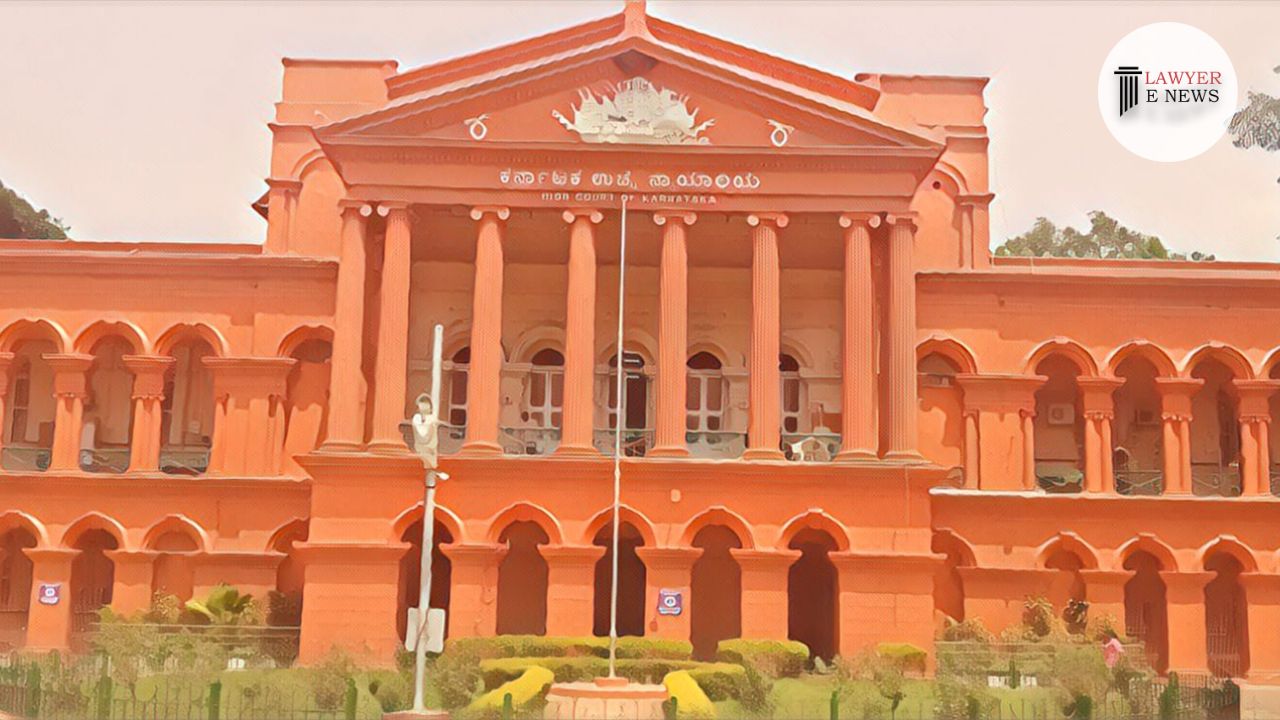-
by Admin
15 February 2026 5:35 AM



Justice M. Nagaprasanna underscores the need for a thorough investigation into allegations of sexual harassment under Section 354A of the IPC.
In a recent ruling, the High Court of Karnataka dismissed a petition filed by Dr. Chethan Kumar S., seeking to quash an FIR registered against him for sexual harassment under Section 354A of the Indian Penal Code (IPC). The judgment, delivered by Justice M. Nagaprasanna on June 3, 2024, emphasized the gravity of the allegations and the necessity of a detailed investigation to uphold justice.
The petitioner, Dr. Chethan Kumar S., a doctor by profession, was accused by a female patient of inappropriate conduct during a medical examination. The complainant, suffering from chest pain, visited Orbsky Hospital in Bangalore, where Dr. Kumar was on duty. Following a preliminary examination and subsequent tests, Dr. Kumar allegedly asked the complainant to visit his private clinic for further examination. It is here that the alleged incident of sexual harassment took place. The complainant stated that Dr. Kumar inappropriately touched her and kissed her breast during the examination.
Credibility of Allegations: The court observed that the relationship between the complainant and the petitioner was that of a patient and a doctor, inherently involving a significant degree of trust. Justice Nagaprasanna noted, “The act of the doctor in directing the complainant to remove her shirt and bra and placing his mouth on the left breast would undoubtedly constitute the ingredients of Section 354A of IPC as it is undoubtedly an unwelcome and explicit overture.”
The court discussed the principles under Section 354A of the IPC, which penalizes physical contact and advances involving unwelcome and explicit sexual overtures. The court highlighted the vulnerability of patients and the inherent power imbalance in the doctor-patient relationship. Justice Nagaprasanna remarked, “A doctor should remember that the patients seek their help when they are in a vulnerable state – when they are sick, needy, and uncertain about the needs to be done. This vulnerability should not be used as a weapon by the doctors, misusing the trust the patient reposes in the doctor.”
Justice Nagaprasanna underscored the need for ethical conduct in medical practice, stating, “Due to such position of power and trust between the doctor and a patient, no alleged sexual activity by the doctor on the patient is acceptable. If it happens or it is alleged to have happened, it represents sexual abuse.”
The High Court's decision to dismiss the petition for quashing the FIR sends a strong message about the seriousness with which allegations of sexual harassment, especially within the sensitive context of a doctor-patient relationship, are viewed by the judiciary. The ruling reinforces the importance of maintaining ethical standards in medical practice and ensures that allegations of such nature are thoroughly investigated. This judgment not only upholds the complainant's right to seek justice but also sets a precedent for handling similar cases in the future, emphasizing the judiciary’s commitment to protecting vulnerable individuals.
Date of Decision: June 3, 2024
Dr. Chethan Kumar S. v. State of Karnataka and Anr.
